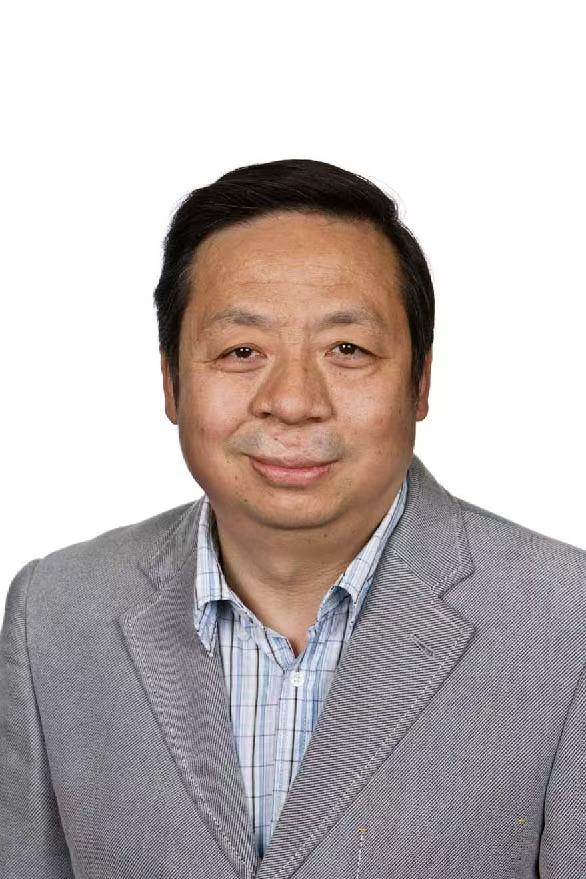
Fubo Zhang
Ph.D., Principal Investigator,Professor
Email: zhangfubo@@gdiist.cn
Personal Profile
Zhang Fubo, Professor, Head of the Computing Power Scheduling and Brain-Inspired Computing Applications Research Group, and experts in cloud computing and high-performance intelligent computing.
He holds a Bachelor of Science in Computer Science and a Master of Science in Computer Science from Fudan University, as well as a Ph.D. in Computer Science from Ghent University, Belgium. He formerly led and participated in the system compilation of China’s Galaxy-II supercomputer, served as a grid computing expert for the National 863 Program, and contributed to the National 863 Manufacturing Grid Project, introducing high-performance computing and grid technology to key sectors such as China’s aerospace and aviation. He participated in the construction of China’s first national-level supercomputing center—the Shanghai Supercomputing Center—and served as an expert reviewer for informatization projects in Shenzhen.
Dr. Zhang was an editor for the SCI journal Parallel Computing (PARCO) and worked at Platform Computing in Canada—a global leader in high-performance and grid computing—where he served as a designer and architect for the LSF cluster scheduling software. Upon returning to China, he held roles as CTO and R&D Director for the Asia-Pacific region, as well as General Manager for China.
He later founded SkyForm Software, developing the SkyForm CMP cloud platform and the SkyForm AIP scheduling system, which support core clients including China Mobile, China Unicom, China Telecom, COMAC, Sunway TaihuLight, and the Jinan/Guangzhou/Shenzhen Supercomputing Centers. He holds multiple technical patents in the field of high-performance computing and has long been dedicated to the development of computing infrastructure, intelligent scheduling, and cloud platforms. He was honored as one of "China's Top 10 Leading Figures in Software."
Laboratory of Computing Power Scheduling and Brain-Inspired Computing Applications:
With the rapid advancement of artificial intelligence and large-scale models, computing power has become one of the three core pillars driving the development of the intelligent era. The demand for computing resources continues to surge across the industry, showing trends toward high density, low latency, and heterogeneous integration. Traditional von Neumann architectures are increasingly unable to meet the performance, power efficiency, and scalability needs of large-scale intelligent computing. As a result, non-von Neumann architectures—such as in-memory computing and event-driven models—are emerging as important complementary approaches.
This makes it strategically significant to research and develop intelligent scheduling platforms that support heterogeneous computing (xPU: CPU/GPU/FPGA/BPU) and system-level integration with neuromorphic chips. Such platforms are essential for achieving autonomous and controllable next-generation computing infrastructure and accelerating the industrialization of intelligent computing.
Our research group focuses on next-generation computing power scheduling technologies and applications of neuromorphic computing for the future intelligent society. Centered around the goal of “breaking the bottleneck of computing power scheduling and advancing the practical adoption of neuromorphic applications,” the group extends computing power scheduling into FPGA and neuromorphic domains. We aim to overcome the limitations of traditional computing architectures and resource scheduling models by building intelligent scheduling and integration systems that adapt to diverse computing ecosystems and complex application scenarios.
We are developing a computing orchestration framework that supports wide-area heterogeneous resources, studying cross-region scheduling protocols, edge-cloud collaboration mechanisms, and resource optimization algorithms to enhance the efficiency of the emerging "computing power network." At the same time, leveraging our independently developed neuromorphic computing platform, we explore its practical application and engineering capabilities in key areas such as large model inference, intelligent finance, industrial safety, and cognitive control. Focusing on low-power inference, multimodal perception, and edge intelligence control, we aim to drive the transformation of neuromorphic computing from prototype to industry-ready systems.
Representative publications
1. Zhang, Fubo, and Erik D’Hollander. “Using Hammock Graphs to Eliminate Nonstructured Branch Statements.” Lecture Notes in Computer Science. Ed. Arndt Bode, Mike Reeve, & Gottfried Wolf. Vol. 694. Berlin, Germany: Springer, 1993. 732–735.
2. Zhang, Fubo, and Erik H. D'Hollander. "Generating parallel loops from serial code for PVM." Workshop on First European PVM Users Group Meeting, Rome, Italy, October. 1994.
3. ZHANG, F, and Erik D’Hollander. “Extracting the Parallelism in Programs with Unstructured Control Statements. International Conference on Parallel and Distributed Systems, ICPADS, IEEE Computer Society Press, Hcinshu, 1994,p. 264-270.”
4. Zhang, Fubo. "Development of a Program Information Base for the FPT Programming Environment." PARCO. 1995.
5. Zhang F, D’Hollander E. Enhancing parallelism by removing cyclic data dependencies. In: Halatsis C, Maritsas D, Philokyprou G, Theodoridis S, editors. Lecture Notes in Computer Science. Berlin, Germany: Springer; 1994. p. 387–397.
6. D’Hollander, Erik, and F ZHANG. “A PVM Code Generator for the Fortran Parallel Transformer.” Proceedings of the International Conference on Parallel and Distributed Processing Techniques and Applications, Vol. I, CSREA, Arabnia Hamid R. (ed.), Sunnyvale, Augustus Pp. 341-344. 1997.
7. D’Hollander E, ZHANG F, WANG Q. The Fortran parallel transformer and its programming environment. INFORMATION SCIENCES. 1998;106(3-4):293–317.
8. ZHANG, F, and Erik D’Hollander. “Using Hammock Graphs to Structure Programs.” IEEE TRANSACTIONS ON SOFTWARE ENGINEERING 30.4 (2004): 231–245.
9. Zhang, Fubo. The FPT Parallel Programming Environment. Diss. PhD thesis, University of Ghent, 1996.
10. Zhang, F., & D’Hollander, E. H. Linear Recurrence Relations Transformation in Loops.
11. D’Hollander, Erik H., and Fubo Zhang. "Implementation of Data Dependence Analysis with If-Tests."
12. Zhang, Fubo, and Erik H. D’Hollander. "FPT: A fortran parallel transformer for various computer architectures." University of Ghent (1996).
13. Lu Qi, Zhang Fubo & Qian Jiahua “Program slicing: Its improved algorithm and application in verification“ , Journal of Computer Science and Technology volume 3, Article number: 29 (1988)
Published Work:
Computing Power Economy: From Supercomputing to Cloud Computing Published by China Machine Press, 2023



